Chopin Competition 2025: A Battle of Notes Begins in Warsaw
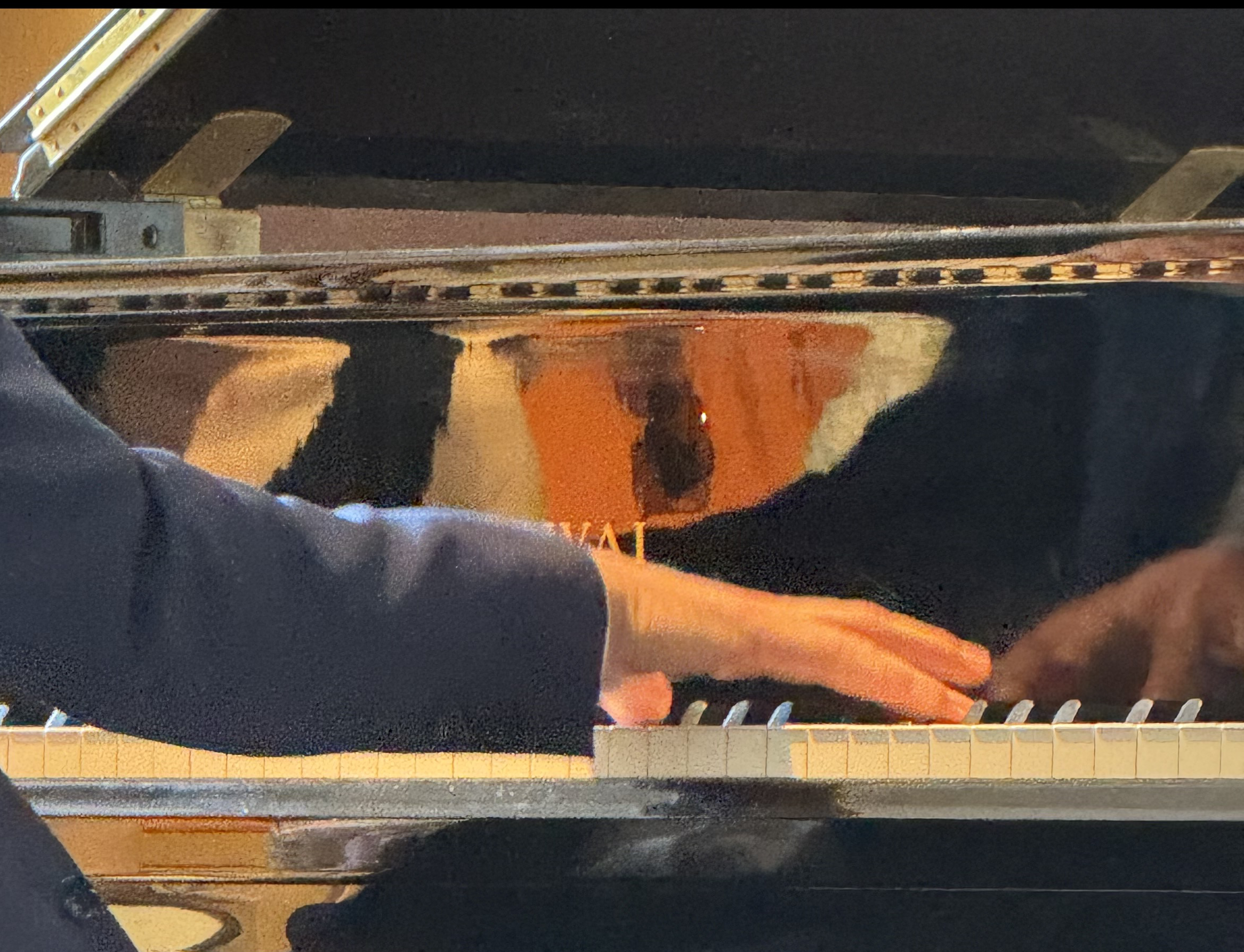
Every five years, the piano world converges on Warsaw, Poland, for the International Fryderyk Chopin Piano Competition (Międzynarodowy Konkurs Pianistyczny im. Fryderyka Chopina). This unique contest is devoted exclusively to the works of one composer – Chopin – with repertoire beyond him permitted only in exceptional cases.
The 19th edition of the competition will take place from 2–23 October 2025, with rounds held at the National Philharmonic and the Polish National Opera (Teatr Wielki), which also hosts the final prize-winners’ concert. Preliminary auditions were staged earlier in the year, between 23 April and 4 May 2025.
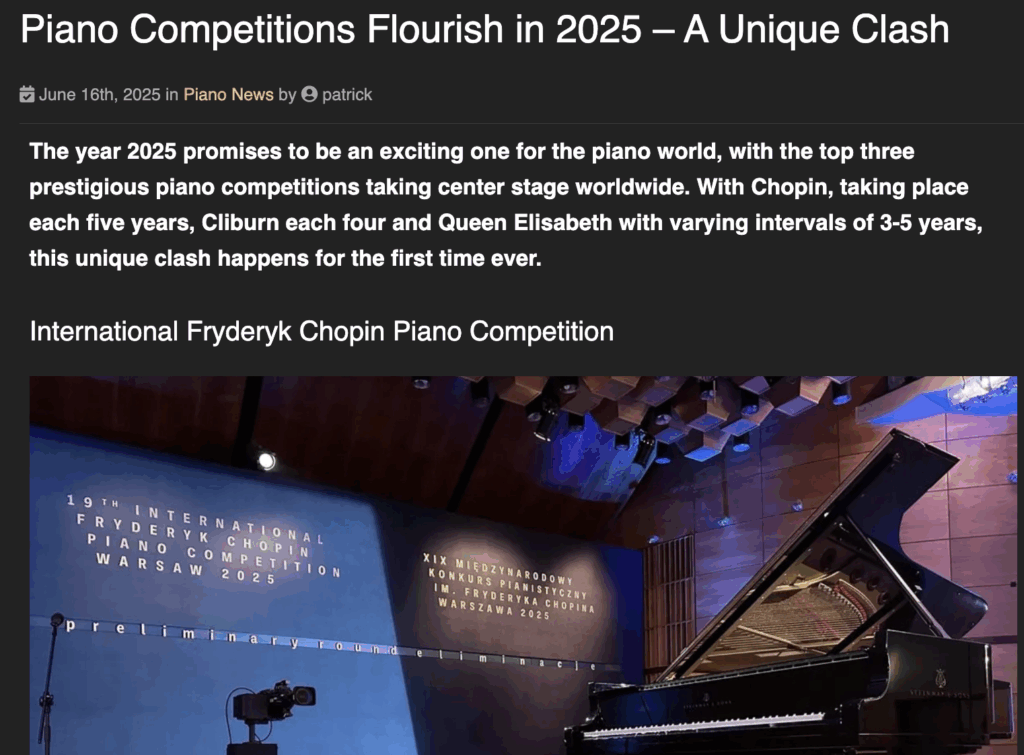
A record 642 pianists from across the globe applied to take part. Of these, 162 reached the preliminaries, and 84 advanced to the main competition. Some were admitted directly thanks to prizes in other prestigious contests such as Leeds, Miami, and Hamamatsu.
The jury numbers 17 distinguished performers and Chopin specialists, chaired by the American pianist Garrick Ohlsson, himself a past Chopin Competition winner.
The programme unfolds across three rounds culminating in the final, where selected pianists will perform Chopin’s concertos alongside mazurkas, sonatas and other major works. The first prize carries €60,000, as well as laureates’ concerts and international tours arranged with partner orchestras and promoters.
This year’s competition takes on added resonance as it falls close to the centenary of the Chopin Competition – the inaugural edition was held in 1927. The idea, born in interwar Poland, was to reassert Chopin’s central role in piano music and to strengthen the country’s international cultural standing. With interruptions only during the war years and rare exceptions, the event has since been held at five-year intervals.
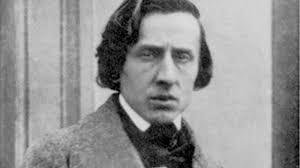
Over the decades, the competition has launched the careers of pianists who became household names, among them Maurizio Pollini (1960), Martha Argerich (1965), Krystian Zimerman (1975), Yundi Li (2000), Rafał Blechacz (2005) and Seong-Jin Cho (2015).
The significance of the event is manifold: it is a springboard for rising stars, it preserves the centrality of Chopin’s works in recital repertoire, and it draws global attention to Warsaw while sustaining appreciation for Poland’s cultural heritage. Few other competitions in the world are so tightly focused on a single composer, demanding of entrants not only technical brilliance but also profound stylistic understanding of Chopin’s Romantic idiom.
Finnish pianists have not made a major mark on the Chopin Competition. An exception is Janne Mertanen, who competed in 1995 and later built a career around Chopin recordings and recitals. Olli Mustonen has also given recitals at the Chopin Institute, including a Warsaw performance in 2020 in the “Before the Grand Competition” series.
A new film about Chopin has just been released: Chopin, Chopin!, directed by Michał Kwieciński. Films are an excellent way to bring classical music to new audiences. Mozart has gained popularity in recent decades thanks to at least two films — first A Clockwork Orange, then Amadeus. It will be interesting to see what kind of acclaim Chopin, Chopin! brings to its protagonist’s music.
Why not a Sibelius Airport?
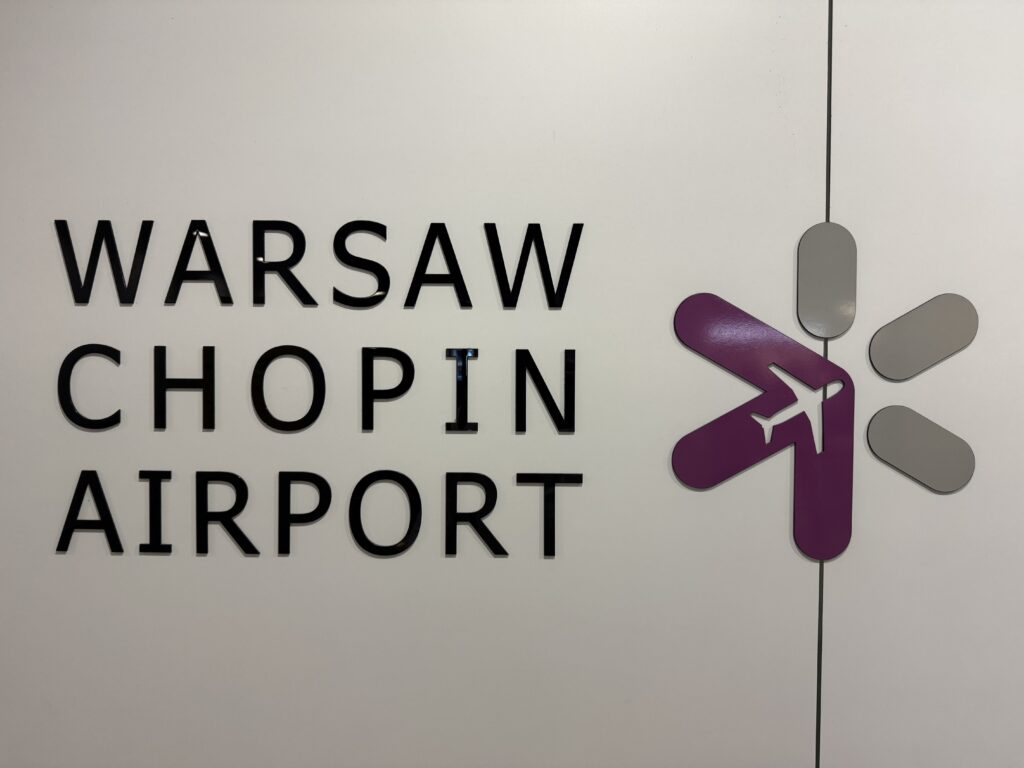
International competitions are powerful cultural brands and stages for young musicians. In Finland, the most prominent is the Jean Sibelius Violin Competition, held every five years in Helsinki. The 2025 edition ran from 19–29 May at the Helsinki Music Centre and the Sibelius Academy, with South Korean violinist Sueye Park emerging as the winner.
Such events prompt reflection on how Finland might reinforce its own cultural profile – perhaps through a major piano competition alongside the Sibelius Violin Competition, or even a smaller Chopin-style contest.
In Warsaw, Chopin’s name embodies not just a competition but a national image. Even after the Second World War, culture was a central tool for rebuilding Polish identity. Today, Chopin’s legacy is entwined with Warsaw’s international reputation.
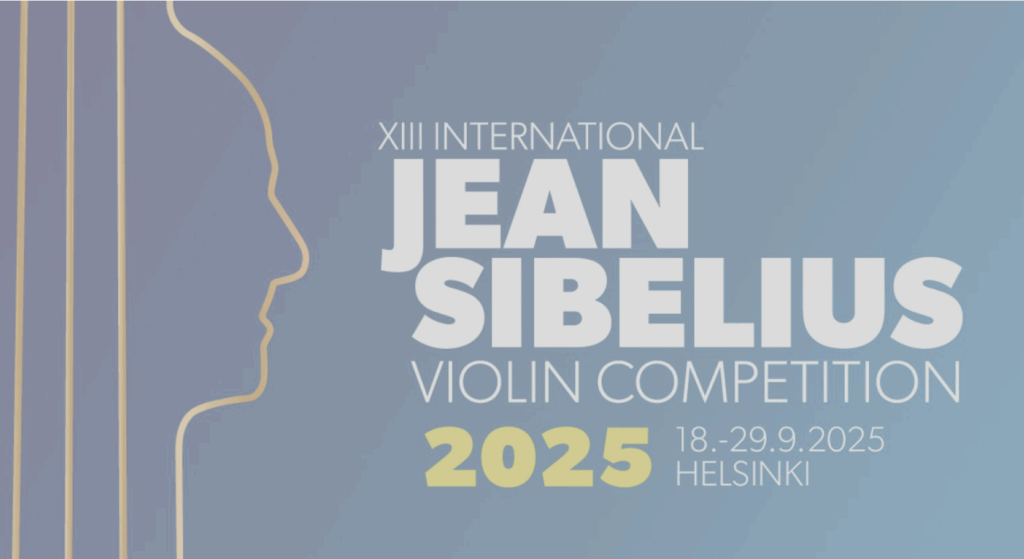
Interestingly, only two international airports are named after composers: Warsaw Chopin Airport (WAW) and Budapest Liszt Ferenc International Airport (BUD). Years ago, there was debate in Finland over renaming Helsinki-Vantaa (HEL) as “Sibelius Airport” – but the idea fizzled out, perhaps lost to legal wrangles. “Helsinki-Vantaa” remains neutral and rather bland compared with the cultural resonance of “Helsinki Sibelius Airport.”
Read More:
- Chopin Competition official: konkursy.nifc.pl / chopincompetition.pl
- Wikipedia: International Chopin Piano Competition
- Culture.pl: “Meet the Jury” 2025
- WFIMC: Warsaw International Fryderyk Chopin Piano Competition
- Sibelius Violin Competition
- The Violin Channel: Sueye Park wins 2025 International Jean Sibelius violin competition
- WFIMC: Helsinki – International Jean Sibelius Violin Competition
- Wikipedia: Janne Mertanen
- IMDB: Chopin, Chopin!

Leave a Reply